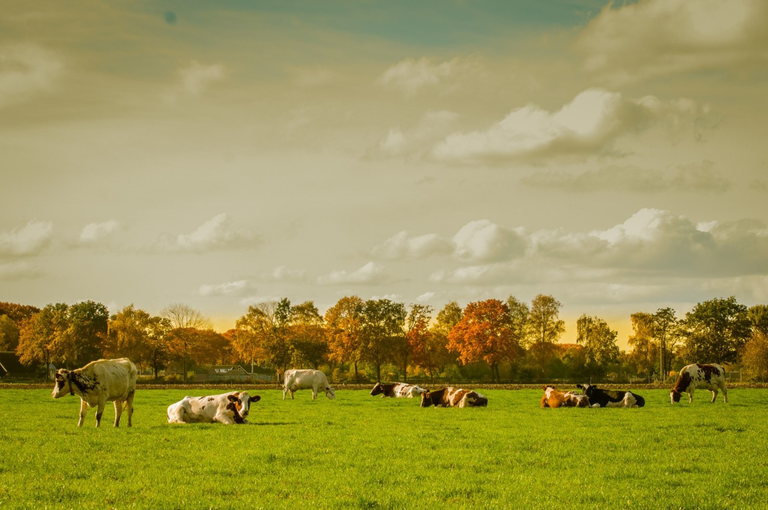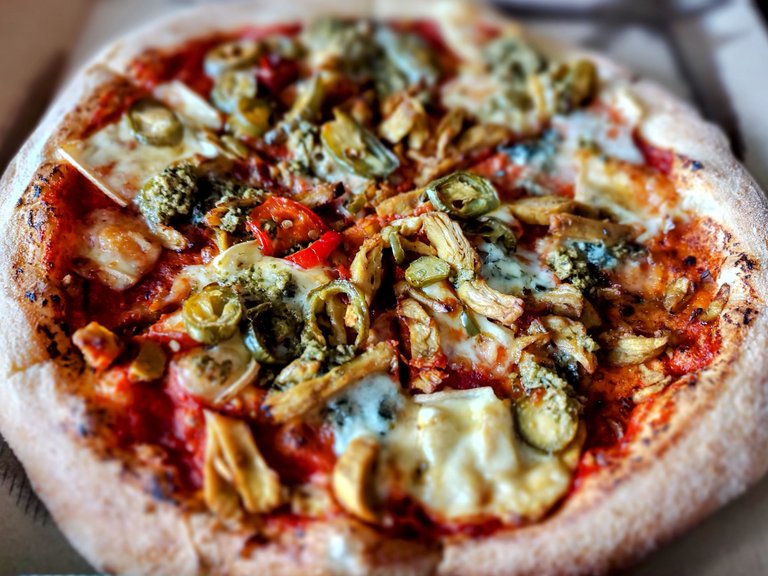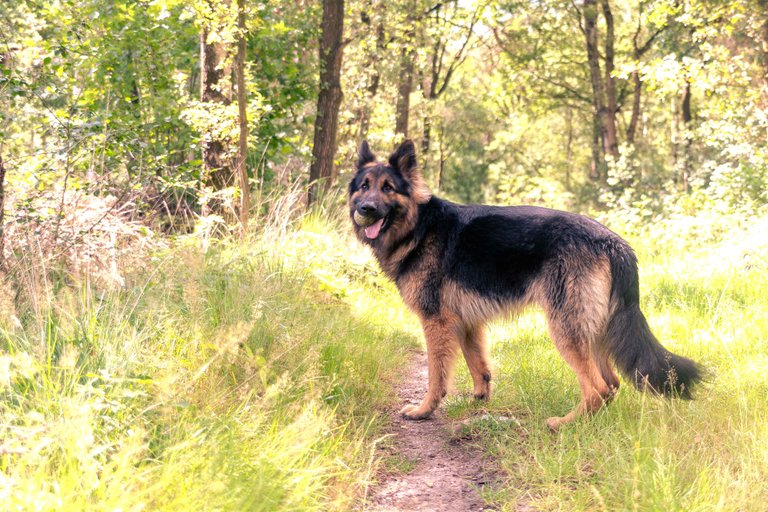Small Choice, Big Impact!
The world population in 2024 is estimated at 8.1 billion people. All those people use our earth and have an ecological footprint. In some parts of the world, this is more than in other parts, but the fact is that the world population has an enormous impact on the earth. But if you look at the number of farm animals living on our planet, you may be even more shocked. It concerns an estimated 70 billion farm animals specially bred and kept for food production. 70 billion! Where the population of wild animals on our planet has decreased by about 70 to 80% since 1970, the number of farm animals has increased by about 80 to 100% since 1970. This is mainly due to the industrialization of livestock farming and the increased demand for animal products such as meat, milk, and eggs. And that this has an enormous impact on the earth, and therefore also on the future, is becoming increasingly clear. For me personally, my idea of food changed in 2012. Up until that moment, I was a real meat eater, like many others. Meat was central to my meals, and I couldn’t imagine anything being complete without meat. At that moment, I met my partner, who has been a vegetarian for over 30 years. You can’t serve a meat meal to a vegetarian, so I slowly started learning how to prepare tasty, nutritious vegetarian meals. And the more I did that, the more I started to learn and see other things. Of course, when you put a piece of meat on your plate, you know that an animal has been slaughtered for it. But I had never thought about how that worked. The moment I started to delve into it, the animal suffering that lies behind the meat industry, and the enormous damage that this industry causes to our planet, completely convinced me to go completely vegetarian.

The animal suffering behind meat consumption
It is not the most pleasant subject to think about, and for many people, it is incredibly difficult to see the connection between the piece of meat on their plate and the life of the animal that suffered for it. I know that most people close their eyes to this reality. They only see that the piece of meat is already in the store. But people forget that in the meat industry, the animals are often kept under very poor conditions. People do not want to know that these animals spend their lives in spaces that are far too small, without enough daylight, and hardly any freedom of movement. A large part of these animals never get the chance to show natural behavior, such as grazing, playing, or socializing. And then you have had such a miserable life as an animal, then finally comes the finale. You have to go to the slaughterhouse.
This is often a terrible process, which already starts with the transport where they are driven into the trucks with electric prods. People do not know that many animals are slaughtered without being stunned. They go into a complete panic before they meet their sometimes horrific end. I can’t even write down how horrible the end is for many of these animals because it makes me feel completely sick. And the idea of all this happening, and then me eating a piece of meat from such an animal, makes me feel even more sick. Every vegetarian meal I eat now is a step away from this cruel industry for me. I cannot support how people treat animals. For me, vegetarian eating is a way to make a small contribution to reducing animal suffering and putting animal welfare first.

Eating vegetarian helps the planet
The more I learned about the meat industry, the more I learned about our planet. Of course, I know that opinions on this too differ greatly. In addition to animal suffering, the meat industry is one of the biggest culprits when it comes to global warming and the destruction of natural resources. Many people deny that there is a problem with the large-scale meat industry. It's a sad fact, and I can't help wondering why there are not more people realizing that vegetarian food is one of the best ways to eat if you want to help the planet, for ourselves, and also future generations. Here are some of the top reasons why vegetarian food is good for the planet:
Reducing Greenhouse Gases One of the biggest problems with the meat industry is the huge greenhouse gas emissions. The livestock industry is responsible for about 15% of global greenhouse gas emissions, mainly from methane, which is released from the stomachs of ruminant animals such as cows. Methane is a powerful greenhouse gas that traps much more heat than CO2, which contributes to accelerated global warming. By consuming less meat, we can reduce these emissions. Every time you choose a vegetarian meal, you are contributing to n the reduction of these harmful gases.
More efficient use of land and water Meat production requires much more land and water compared to plant-based foods. For every kilo of meat, a huge amount of animal feed is needed, as well as large amounts of water. For example, it takes an average of 15,000 liters of water to produce one kilo of beef, while the same amount of plant-based foods use much less water. By switching to a vegetarian diet, we help conserve scarce resources such as water and agricultural land. This is crucial at a time when more and more areas are facing drought and food shortages.
Reducing deforestation One of the greatest threats to biodiversity is the deforestation of rainforests and other natural areas. Large areas of rainforest are cut down to make room for cattle ranching or to grow soy and corn, which are used as animal feed. Eating less meat can help reduce the demand for new agricultural land, which reduces deforestation and protects ecosystems. Rainforests are not only home to countless plant and animal species, they also play a crucial role in regulating the global climate.
Reducing Water Pollution Intensive livestock farming produces large amounts of manure and waste, which often ends up in rivers and other water sources. This causes water pollution and leads to environmental problems such as algae blooms, which in turn can lead to dead zones in oceans and lakes. Unlike meat production, plant-based crops cause much less water pollution. By eating more plant-based foods, we contribute to cleaner waterways and healthier ecosystems.
Protecting Biodiversity When forests and natural areas disappear to make way for livestock farming, many animals lose their habitat. This loss of biodiversity is one of the greatest environmental problems of our time. By eating less meat and choosing a plant-based diet, we can help preserve natural habitats and protect biodiversity. This is important because healthy ecosystems are essential for maintaining our climate, our water resources, and even the air we breathe.
Lower Energy Needs Producing meat is not only intensive on land and water but also on energy. From growing feed to transporting animals, to processing meat. All of these steps require a lot of energy. The energy needs for producing plant-based foods are significantly lower, which means that a shift to a vegetarian diet also helps reduce the energy used to produce food.

Small Changes, Big Impact
Of course, I also understand that not everyone wants to eat completely vegetarian. But if more people would just start eating meatless one or a few times a week. That would make a huge difference. And the more you do that, the more you experiment, the more you realize that there are so many dishes you can make that don’t miss meat at all. Be surprised by the variety of flavors and textures that vegetarian food offers.
For me personally, the extreme animal suffering behind the meat industry was the reason to step away from it and decide that no more animals would be slaughtered for me. That it also turns out to be better for the planet is a very nice side effect that can offer hope for future generations.
I fully agree, although I'm not vegetarian I have plenty of days that I don't eat any meat at all so in the past years I've been definitely trying to eat less meat.
I've noticed that when I eat more meat one day, because it's a good meal for example, I immediately pay the price as it's not a smooth for me internally as it is when I eat mostly veggies. Every time it happens, I stay away from it fully for some days because of the discomfort.
I'm surely against any animal suffering btw, I wish that didn't exist at all :(
Although eating meat will always involve animal suffering, this can certainly be drastically reduced if more people start eating vegetarian one or a few days a week. I don't think prevention will ever be possible unless every meat eater in the world switches to cultured meat. And I don't think that will ever happen.
Now I also know that every type of food we eat will be a burden on the planet to some extent. Vegan and vegetarian food also pose a burden. As I said, for me, animal suffering was the main reason to go vegetarian. This does not mean that I eat completely animal-friendly, because unfortunately, I can't bring myself to eat vegetarian cheese and eggs, for example. I find the cheese tasteless, and far too expensive. Vegan eggs are the same story. I know that there is a lot of animal suffering there too, and I don't eat it much anymore. But in any case, no animals are slaughtered for that. A dead chicken doesn't lay an egg and a dead cow doesn't give milk.
Nobody is perfect, let's just say that I try to do the best I can to prevent animal suffering.
This is it exactly, I know there's not a one size fits all package for each person, I tried the vegan cheeses myself and found only one that I really liked in Budapest BUT it was indeed super expensive and not sustainable to buy that cheese only. On top of that, I was the only one loving it :)
I think it also helps (with eggs) to not buy the cheapest eggs available, I always go for the XL ones and they are of far better quality (at least here) than the cheap M sized ones. They taste so much better, I can't imagine the smaller ones come from chickens in the same circumstances.
!LUV !LADY
@hetty-rowan, @thisismylife(1/10) sent you LUV. | tools | discord | community | HiveWiki | <>< daily
View or trade
LOHtokens.@thisismylife, you successfully shared 0.1000 LOH with @hetty-rowan and you earned 0.1000 LOH as tips. (1/3 calls)
Use !LADY command to share LOH! More details available in this post.
We always buy the eggs directly from a farm nearby where we see every day that the chickens are happily roaming around outside on a large piece of land. Where we see that they are fed well and where the natural needs of a chicken are met. They are also friendly in terms of price which is also a plus for us.
!PIMP !LADY
View or trade
LOHtokens.@hetty-rowan, you successfully shared 0.1000 LOH with @thisismylife and you earned 0.1000 LOH as tips. (1/1 calls)
Use !LADY command to share LOH! More details available in this post.
Yeah that's great, I hope one day we will be ablet to do the same .. right now I'm leaning towards trying the eggs from the fruteria as I saw them having a lot of fresh veggies and even dragonfruit :) lol..
I don't think it's doable to buy all veggies and eggs there though, usually it's quite a bit expensive in total but we'll see. Step by step :)
!PIMP !LADY
View or trade
LOHtokens.@thisismylife, you successfully shared 0.1000 LOH with @hetty-rowan and you earned 0.1000 LOH as tips. (2/3 calls)
Use !LADY command to share LOH! More details available in this post.
Same here, we try to do the best we can within our budget.
Congratulations @hetty-rowan! You have completed the following achievement on the Hive blockchain And have been rewarded with New badge(s)
Your next target is to reach 170000 upvotes.
You can view your badges on your board and compare yourself to others in the Ranking
If you no longer want to receive notifications, reply to this comment with the word
STOP